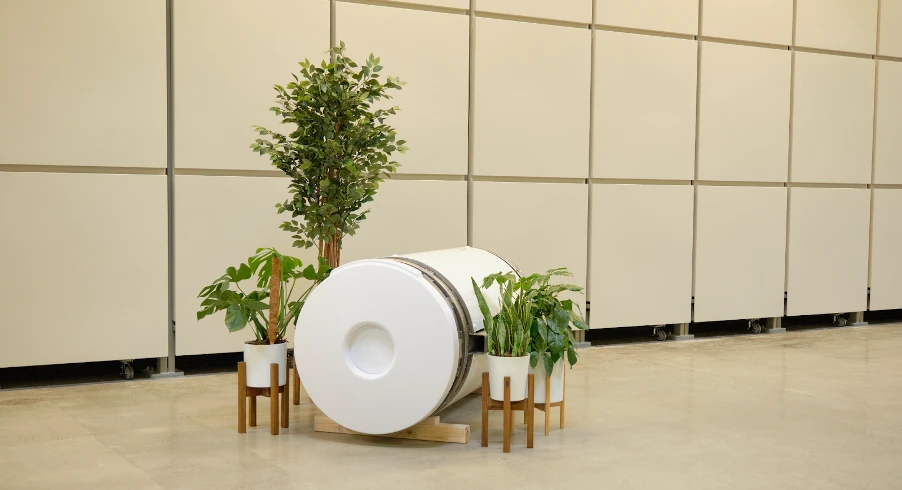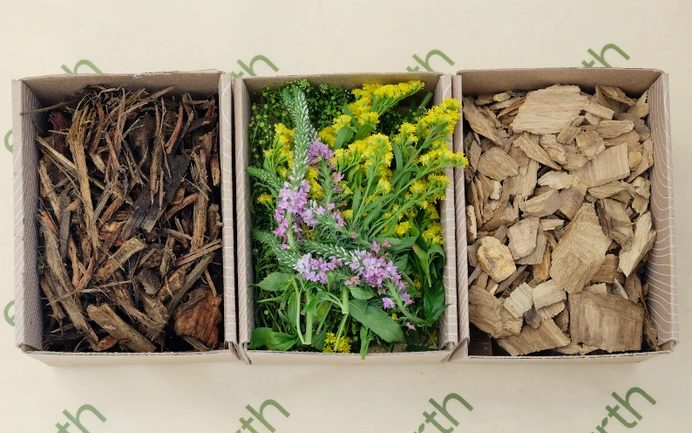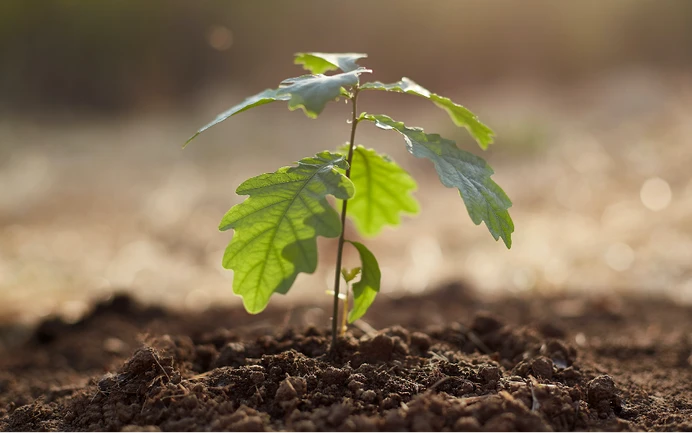
How Is A Body Prepared For Soil Transformation?
By: Tom Harries
Jun 22, 2022 | Soil Transformation
4 min readSoil transformation is an environmentally-friendly alternative to cremation and burial. Over a 45-day process a body is gently transformed into nutrient-rich soil, which can then be used for memorialization and conservation purposes.
This article looks into what is involved in soil transformation, focusing particularly on how a body is prepared for the process. It also looks at how this compares to the preparation of a body for other funeral options, and how choices at this early stage of a funeral process can impact the environment.
What Does Soil Transformation Involve?
Soil transformation, also known as natural organic reduction or human composting, uses the principles of nature to transform bodies into soil. The process recreates conditions found in the natural world by balancing elements, and optimizing temperature and moisture levels. The body is broken down on a molecular level to produce healthy soil at the end of the process.
At Earth, our families choose how much soil they would like returned and the remainder is sent to our conservation site. Healthy soil is important to a healthy ecosystem, performing vital functions such as filtering water and providing nutrients to wildlife. The soil from our process is therefore perfect for land that needs restoring.
As well as producing soil that can positively impact the environment, the process is carbon-neutral, avoiding the pollutive side-effects of traditional burial and cremation. Soil transformation is therefore appealing to environmentalists, nature lovers and those concerned about the future of our planet.
How is a Body Prepared for Earth Soil Transformation?
As soon as arrangements have been completed and the required legal documents have been signed, our team brings the body into our care. This is a simple process, with online arrangements taking less than 15 minutes. The body is then ready to be prepared.
The body is gently washed and wrapped in a biodegradable shroud. It is then placed in its own individual vessel on a layer of organic mulch and woodchip. Wildflowers are added to the vessel at the same time as the body.

The soil transformation process requires the correct balance of carbon and nitrogen. The right combination of mulch, woodchip and wildflowers achieve this balance. These materials are organic and locally-sourced, and each is carbon or nitrogen dense.
As a completely natural process, soil transformation does not use chemicals or synthetic materials at any point. Preparation of the body is careful, simple and natural, and takes place in the serene surroundings of our beautiful facilities.
How Does This Compare to Other Funeral Processes?
Preparation of a body for other funeral practices can range from minimal, natural processes that do not disturb or alter the body, through to processes that involve invasive, surgical procedures.
Green funeral options tend to involve simple and natural preparation processes. This is clearly the case with soil transformation, but is also true of green or natural burials. These burial variations remove many of the environmentally damaging aspects of traditional burial. Typically they avoid the use of chemicals such as embalming fluids and involve the body being buried in a biodegradable vessel or in some cases there is no vessel at all.
Embalming is common in the US and is particularly common ahead of traditional burial and cremation. Embalming aims to preserve a body, rather than allowing decomposition, and often also aims to keep an individual’s features as they were presented during life.
Traditional embalming processes are surgical and generally involve the removal of bodily fluids including blood, followed by the injection of embalming fluid into the arterial network and surface treatments. There are now more natural embalming processes which avoid the harshest chemicals. Embalming can be avoided altogether through the use of refrigeration, and this is the norm in many countries.
Preparation of a body for traditional funeral practices also often involves dressing and grooming. This is a step that is uncommon in sustainable alternatives.
Environmental Considerations
How a body is prepared can have a significant impact on the environmental friendliness of a funeral.
Embalming fluid is made up of harmful chemicals, one of which is formaldehyde - a toxic carcinogen. Each year more than four million gallons of embalming fluid are estimated to be buried in the US. This has led to growing concern about the impact on our soil.
Our soil sustains our planet, and poor soil health can negatively impact the air, sea, ground, plants and wildlife. Soil pollution is therefore a pressing environmental concern.

Preparations that avoid chemicals are the most environmentally-friendly option. Soil transformation and natural burial both seek to return the goodness of the human body to the earth, and that is why both processes keep the body in a natural condition.
Explore
Earth’s soil transformation process seeks to avoid environmental harm and maximize environmental good at every stage. We believe that this makes our promise of a return to nature all the more authentic.
If you found this article interesting, you can read more about soil transformation and the stages beyond preparing the body. You can also get an instant online quote for our human composting services.
Get a quote in seconds.







